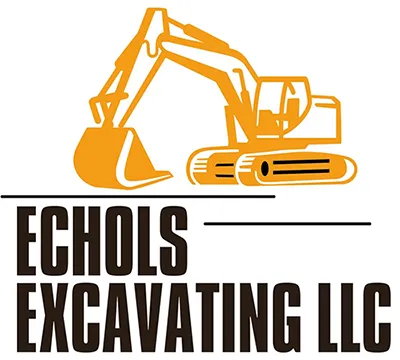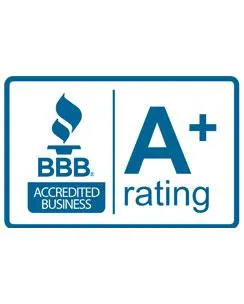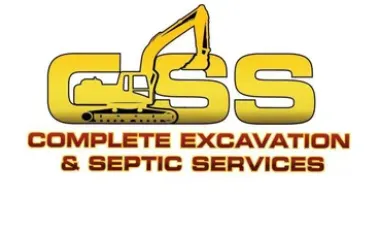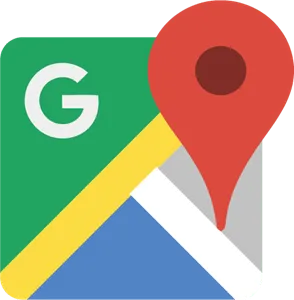
Serving Counties: Southeastern Ohio and Surrounding Areas
Blogs

Looking for the Best Pond Contractors Near Stark County? Here’s What to Ask Before You Hire
Why So Many Stark County Homeowners Regret Their Pond Contractor
You wouldn’t believe how many folks we hear from after their pond was already built — and already leaking, draining wrong, or turning into a swamp.
They usually say the same thing:
“I wish we would’ve asked more questions before hiring someone.”
That’s the kind of regret we hate to see.
Because here’s the truth: building a pond looks simple — a hole, some liner, a pump maybe — but it’s actually one of the easiest places to waste money if you hire the wrong crew. And once the dirt is moved, it’s a lot harder (and more expensive) to undo.
Who This Article Is For (And Why It’ll Help You)
This is for homeowners near Stark County, Ohio — and all across eastern and southeastern Ohio — who’ve been dreaming of a pond.
Maybe you want a peaceful view out your back window.
Maybe you want a spot for wildlife.
Maybe you just want to add value to your land or give the kids a place to fish.
Whatever the goal, the fear is usually the same:
“What if we hire someone who doesn’t really know what they’re doing?”
You’ve probably seen some bad jobs before — ponds that won’t hold water, that flood yards, that stink or grow thick with algae. This article is here to help you avoid all that. No sales pitch. Just straight-up information you can use.
We’re Echols Excavating LLC, and we’ve been building ponds in counties all around you — from Guernsey and Muskingum to Jefferson and Stark — for years. We’re not the biggest outfit, but we are obsessed with getting things right, and this is exactly what we’d tell our own family before they hired anyone for a pond project.
The Real Cost of Hiring the Wrong Pond Contractor
Bad pond work is more than just frustrating. It’s expensive.
Let’s say you pay someone $12,000 to build you a pond. But they didn’t compact the soil right, or they didn’t grade the slopes properly. Now your liner’s torn, water’s leaking out, and the banks are eroding.
Fixing that mess? Could easily run you another $8,000–$15,000.
We’ve seen it happen.
And in some cases, the land is damaged so badly you’ve got to completely start over. That’s why you want to hire the right team the first time — and that starts with asking smart questions.
Top Questions to Ask Before You Hire a Pond Contractor
These aren’t trick questions — they’re the kind of things that separate a true pro from a guy with a backhoe and a business card.
1. Do You Have Experience With Ponds Like Mine?
Not all ponds are the same.
A livestock pond in rural Morgan County?
A koi pond in a backyard in Canton?
A 1-acre fishing pond in Washington County?
They all need different planning, depth, drainage, soil treatment, and more. Ask the contractor if they’ve built ponds like the one you’re planning — not just “a pond, somewhere, once.”
2. Can You Show Me Real Project Photos or Referrals?
If they’ve done solid work, they’ll be proud to show it off.
Look for:
Before-and-after photos
References you can actually call
Addresses (when clients are comfortable) so you can drive by
You want to see that they didn’t just dig a hole — they built a healthy, usable pond that still holds up years later.
3. What’s Your Process From Start to Finish?
Any experienced pond Contractor should walk you through:
Site evaluation: How your slope, soil, and water table affect design
Design layout: Shape, depth, and features like islands or overflow pipes
Excavation and grading
Liner or soil compaction method
Drainage and inflow
Finish grading, seeding, or erosion control
If they just say, “We dig and go,” that’s a red flag.
4. How Do You Handle Drainage and Overflow?
This one’s huge. In Stark County, we get real rain — and your pond has to handle it.
If a contractor doesn’t talk to you about overflow pipes, swales, or emergency spillways? Move on.
Poor drainage means:
Washed out banks
Nearby flooding
Damage to buildings or driveways
Erosion that slowly kills your pond
A good Contractor will plan for overflow from the start.
5. Will You Handle Permits and Regulations?
Some ponds — especially larger ones or those near wetlands — require permits.
In counties like Coshocton or Noble, you may need to talk to the local soil and water district or Army Corps of Engineers.
Your contractor should know this — and either handle the paperwork or guide you through it.
6. What Type of Maintenance Will I Need?
A good Contractor doesn’t just vanish when the last bucket of dirt is moved.
They’ll talk about:
Algae control
Bank maintenance
Sediment removal (years down the line)
Wildlife management
Aeration if needed
You’re not just buying a hole in the ground — you’re investing in a living system. It needs care.
7. Are You Local to Stark County or Just Passing Through?
Look, there are good Contractors all over. But hiring someone who knows the land — the local soil types, drainage issues, and weather patterns — is a big advantage.
We’ve worked in Perry County’s clay-heavy soil and in the loamy hills of Jefferson. We know the differences — and how to adjust for them.
A traveling crew might not.
The Red Flags Most Homeowners Miss
Some things that should make you pause:
No contract or vague quotes
“We can start tomorrow” (good crews are usually booked out a bit)
Cash-only jobs
No equipment ownership or rental agreements
“We don’t need permits, just dig it”
Trust your gut. If it feels off, it probably is.
What Makes a Pond Contractor Worth Your Trust
It’s not just the equipment. Or the years in business. Or even the price.
It’s whether they:
Listen to your goals
Explain the process clearly
Tailor the design to your land
Respect your budget
Give you honest answers — even if it’s not what you hoped to hear
You want someone who takes it personally — who builds like it’s going in their own backyard.
Why Customization Matters More Than You Think
At Echols Excavating, we don’t show up with a one-size-fits-all blueprint.
We look at:
Your property’s shape
Your long-term goals (fishing? swimming? livestock?)
Water sources (springs, runoff, well-fed?)
Erosion risks
Wildlife impact
Access for equipment and upkeep
You’re not buying a pond — you’re shaping your land. And it needs to work for you.
Pond Building in Ohio Isn’t One-Size-Fits-All
We’ve worked in the hills of Belmont. The clay soils of Muskingum. The flat fields of Licking. Each area brings different challenges — and lessons.
Some jobs need:
Heavy compaction and bentonite sealing
Deep digging to hit groundwater
Overflow routes that protect nearby barns or driveways
Silt fences and seeding to stop erosion
That’s why we plan like crazy before we ever break ground.
How Echols Excavating LLC Builds Ponds That Fit Your Land (and Your Life)
We’re not trying to be the biggest name out there. We’re just trying to be the kind of contractor you’d call again — or tell your neighbor about when they ask, “Who built that great pond for you?”
Our team serves folks across Ohio and parts of West Virginia, from Stark County down to Athens and over to Jefferson. And whether you’re building a small wildlife pond or something big enough to paddle a kayak in — we can help you think it through, the right way.
We dig ponds, sure. But really, we’re helping people shape their land in a way that lasts.
Final Thoughts: Hire Slow, Dig Once
If you’re in Stark County or nearby and you’re ready to build a pond — take your time.
Ask the questions. Look at the past work. Check the reviews. And most importantly, find someone who gets what you want your land to become.
At Echols Excavating LLC, we’re ready when you are — but even if you don’t hire us, we hope this article helps you find someone who will build your pond the right way, the first time.
Hours: 8:00am-5:00pm M-F
Extended hours by appointment only.
WE SERVE OHIO: Guernsey, Noble, Belmont, Washington, Monroe, Morgan, Athens, Muskingum, Licking, Coshocton, Tuscarrarus, Stark, Harrison, Perry, Hocking, Fairfield, Meigs, Holmes, Carrol, Jefferson; WEST VIRGINIA: Brooke
All rights reserved | Client Support Area




Hours:
Mon - Fri 9:00 am - 5:00 pm
Extended hours by appointment only.



